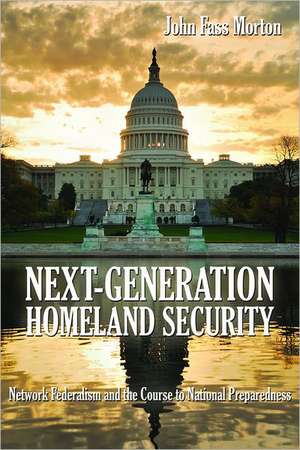Next-Generation Homeland Security: Network Federalism and the Course to National Preparedness
Autor John Fass Morton Tom Ridgeen Limba Engleză Paperback – 14 oct 2012
Preț: 216.78 lei
Nou
Puncte Express: 325
Preț estimativ în valută:
41.48€ • 43.03$ • 34.59£
41.48€ • 43.03$ • 34.59£
Cartea se retipărește
Doresc să fiu notificat când acest titlu va fi disponibil:
Se trimite...
Preluare comenzi: 021 569.72.76
Specificații
ISBN-13: 9781612510880
ISBN-10: 1612510884
Pagini: 408
Dimensiuni: 155 x 229 x 24 mm
Greutate: 0.57 kg
Editura: US Naval Institute Press
ISBN-10: 1612510884
Pagini: 408
Dimensiuni: 155 x 229 x 24 mm
Greutate: 0.57 kg
Editura: US Naval Institute Press
Recenzii
"In my over fifty years of working in Washington, I have always been on the lookout for truly strategic thinking that displays an understanding of ways, means, timing, and the human factors. History has taught us that in American grand strategy, there remains no greater neglected subject than the organization or 'disorganization' of our homeland security. I congratulate John Morton for filling the gap. In his analysis of the U.S. approach, Morton gets it right!"-- David M. Abshire, President and CEO, Center for the Study of the Presidency and Congress; Co-founder, CSIS; U.S. Ambassador to NATO, 1983-87
